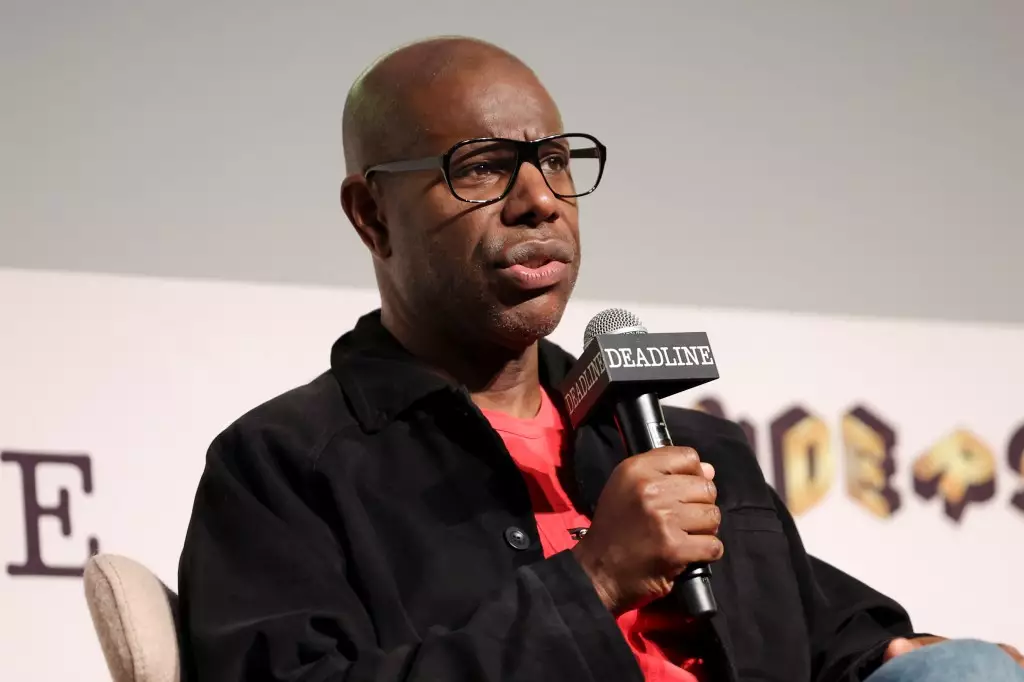In a cinematic landscape saturated with war narratives, Steve McQueen’s latest film, “Blitz,” emerges as a bold and innovative interpretation of World War II. By shifting the lens to that of a child, McQueen invites audiences to rethink their understanding of conflict and its human consequences. The film presents a poignant exploration of innocence amidst chaos, essentially reframing how stories of historical significance can evoke empathy and reflection.
McQueen’s approach to war storytelling is refreshingly unique. Rather than following traditional narratives focused on the grandiose battles or the heroics of adults, “Blitz” tells the story through the journey of nine-year-old George, portrayed by Elliot Hefferman. This choice not only humanizes the conflict but also emphasizes the often-overlooked emotional toll on young individuals caught in the crossfire of adult decisions. In discussing his intent, McQueen noted the importance of seeing the world through a child’s untainted gaze, a commentary on how adults lose their innate curiosity and perspective over time.
The director draws on personal experiences as he reminisces about his daughter’s innocent wonderment, encapsulated by a simple gesture of showing him a leaf. This reflection serves as a poignant reminder of the purity lost amidst the complexities of adulthood and the harsh realities of war. By invoking such personal anecdotes, McQueen not only connects with the audience on a deeper emotional level but also invites them to consider their own lost sense of wonder.
As the plot unfolds, George’s determination to reunite with his family becomes the narrative’s heartbeat. This quest highlights the resilience of youth, even in the face of adversity. Sent to the English countryside for safety, George’s adventures juxtapose the innocence of childhood with the gritty backdrop of a ravaged city. His desire to return home is profound; it reflects a universal yearning for safety and belonging that transcends generations.
While George’s journey is intended to symbolize hope and courage, it also confronts the audience with the harsh realities of wartime peril. This duality—innocence versus danger—creates a rich tapestry of emotion that resonates deeply. Through George, viewers are compelled to confront the often-ignored psychological impacts of war on children, making this film an important commentary on the often-overlooked victims of conflict.
Parallel to George’s adventure is the storyline of Rita, portrayed by Saoirse Ronan, who desperately searches for her son. Ronan’s performance encapsulates the myriad of emotions experienced by a mother in turmoil—fear, anxiety, and an unwavering sense of determination. This subplot complements George’s journey and underscores the affective ties of family amidst crisis.
Ronan’s preparation for the role involved extensive work with a dialect coach to authentically capture the essence of her character’s East London roots. The nuances of the Cockney accent serve as an important element, adding authenticity to Rita’s character. The attention to detail not only enhances the film’s realism but also enriches the narrative by grounding it in historical accuracy, illustrating how society’s values and communication styles have transformed over time.
“Blitz” emerges not merely as another war film but as a profound exploration of humanity through the eyes of a child. Steve McQueen successfully intertwines personal narrative with broader historical themes, creating a work that encourages reflection on our disconnection from innocence as we grow. As we watch George navigate through his perilous journey and Rita grapple with her grief, we are reminded of the innate human desire for connection, safety, and understanding.
In its essence, “Blitz” is a powerful reminder that history, when told through fresh perspectives, can stimulate vital conversations about the effects of war—particularly on the younger generation. As audiences engage with this narrative, they are invited to reflect not only on history but on their own lives, urging a reconnection with the sense of wonder and empathy that often fades with age.


Leave a Reply